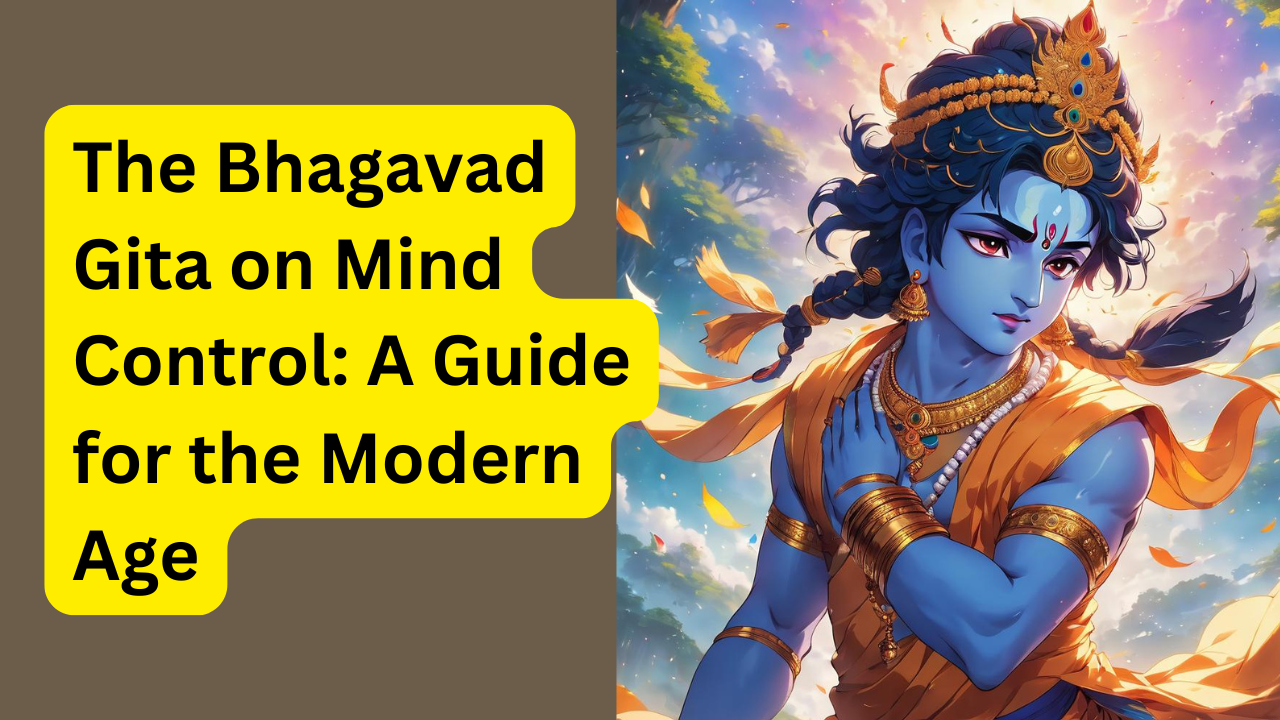The Bhagavad Gita, a revered scripture in Hindu philosophy, provides profound wisdom on controlling the mind. In today’s fast-paced world, where distractions and stress are at an all-time high, the teachings of the Gita offer timeless guidance on self-discipline, focus, and inner peace.
The Mind: A Friend or an Enemy
In Chapter 6, Verse 6, the Gita states:
“For one who has conquered the mind, the mind is the best of friends; but for one who has failed to do so, his very mind will be the greatest enemy.”
This verse emphasizes that the mind, when trained, can be a powerful ally in achieving success and inner harmony. However, if left unchecked, it can become a source of suffering, leading to anxiety, doubt, and negative thinking.
The Role of Discipline and Detachment
Lord Krishna advises Arjuna to practice self-discipline and detachment to gain control over the mind. In Chapter 2, Verse 64, Krishna states:
“But a self-controlled man, moving among objects with his senses under restraint and free from attraction and repulsion, attains peace.”
This suggests that true mental control arises from not being overly attached to pleasure or averse to discomfort. By practicing moderation and mindfulness, one can develop equanimity, leading to a stable and peaceful mind.
Meditation: The Key to Mind Mastery
The Gita extensively discusses meditation (dhyana) as a tool for mastering the mind. In Chapter 6, Verse 19, Krishna compares the focused mind to a steady flame that does not flicker in the wind:
“As a lamp in a windless place does not flicker, so is the disciplined mind of a yogi practicing meditation.”
This highlights the importance of daily meditation to still the mind and cultivate inner awareness. Regular meditation helps individuals detach from external distractions and develop self-control.
Overcoming Negative Thoughts
Krishna advises developing a mindset rooted in devotion (bhakti) and surrender to a higher purpose. In Chapter 18, Verse 66, he says:
“Abandon all varieties of dharma and simply surrender unto Me. I shall deliver you from all sinful reactions. Do not fear.”
This verse encourages faith and surrender, which can help individuals let go of unnecessary worries and find solace in a higher power or purpose, reducing mental turbulence.
Practical Steps for Mind Control in the Modern Age
-
- Practice Mindfulness – Stay present and aware of your thoughts, emotions, and actions.
- Meditate Daily – Set aside time for meditation to develop inner calmness.
- Regulate the Senses – Avoid excessive indulgence and practice moderation.
- Detach from Outcomes – Focus on effort rather than being overly attached to results.
- Cultivate Positive Associations – Surround yourself with uplifting influences that encourage discipline and peace.
- Develop Faith and Surrender – Trust in a higher purpose to relieve stress and anxiety.
Conclusion
The Bhagavad Gita provides a powerful roadmap for mastering the mind, promoting inner peace, focus, and emotional stability. By incorporating its teachings into daily life, one can navigate modern challenges with greater clarity and resilience. Whether through meditation, self-discipline, or faith, the wisdom of the Gita remains a timeless guide for achieving mental mastery in the modern world.

